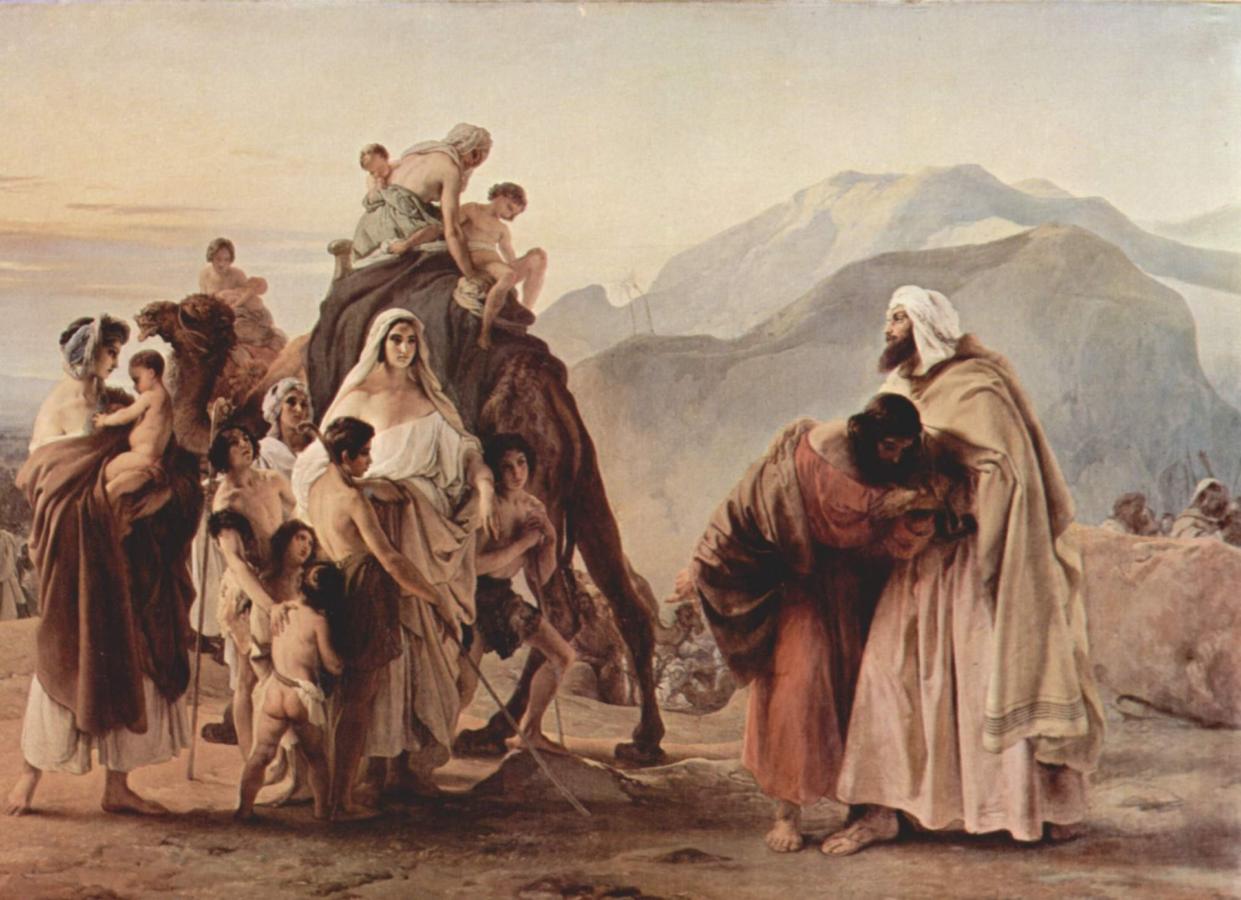Commentary on Parashat Vayishlach, Genesis 32:4-36:43
Parashat Vayishlach opens with the riveting story of Jacob’s night-long struggle with a divine messenger. Two acts of naming occur within this brief episode that reveal how Jacob grows through his struggle. First, Jacob’s mysterious opponent changes his name to Israel. Immediately afterward, Jacob gives a name, Peniel, to the place where he wrestled with God’s messenger. These two acts of naming teach that our lives do not end when we lose a loved one. If we face the fears that arise when a loved one passes, we increase our ability to move ahead meaningfully with our lives.
A close reading of Jacob’s wrestling match with a divine messenger reveals more about his strength of character than his brawn. Jacob is fearful and alone when he is visited by this being. He has sent his family away to the far side of a river and he is apprehensive about his impending reunion with his twin brother Esau, from whom he fled for his life 20 years earlier. But Jacob does not run from this challenge. Instead, he persists in his struggle through the night and is rewarded with a new name, Israel, often translated as “God wrestler.”
Grammatically, the Hebrew form of this name, Yisrael, can imply both that Jacob’s struggles will continue and that he will be able to overcome them. Jacob’s new name signals he now has the capacity to withstand fear and emerge through it as a stronger person.
When Jacob finally faces Esau the next morning, we see him embody this new name. The brothers briefly meet, quickly part ways, and Jacob finally and peaceably closes the chapter on his relationship with Esau. Jacob will learn from subsequent events that his new name is not a protective amulet against future fear. But it will ease his doubts about his ability to transcend it.
With your help, My Jewish Learning can provide endless opportunities for learning, connection and discovery.
Taking a cue from the angel who renamed him, Jacob immediately names the location where he wrestled with a divine messenger. “And Jacob called the name of that place Peniel, meaning, I have seen adivine being face-to-face, and my life has been preserved” (Genesis 32:31). The latter half of that verse is often translated as “yet my life has been preserved,” but the preferable translation is “and.” This one-word change radically alters its meaning. The first rendering suggests Jacob is alive despite a potentially life-ending encounter, while the latter declares that Jacob can move forward precisely because he confronted his fears.
Jacob is permanently wounded from his encounter with this mysterious being. The text tells us that he limps away in the morning. But having faced his fear, he can move forward despite his wound because he is no longer encumbered by fear.
Many mourners struggle with an array of dark feelings after a loved one’s death. Like Jacob, mourners may feel alone and fearful, unsure how to move on without the presence of someone who played such a significant role in their lives. But Jacob’s courage shows that by facing those fears, we can overcome them and move forward — wounded perhaps, but blessed nonetheless.
This article initially appeared in My Jewish Learning’s Reading Torah Through Grief newsletter on Dec. 9, 2022. To sign up to receive this newsletter each week in your inbox, click here.
Looking for a way to say Mourner’s Kaddish in a minyan? My Jewish Learning’s daily online minyan gives mourners and others an opportunity to say Kaddish in community and learn from leading rabbis.



